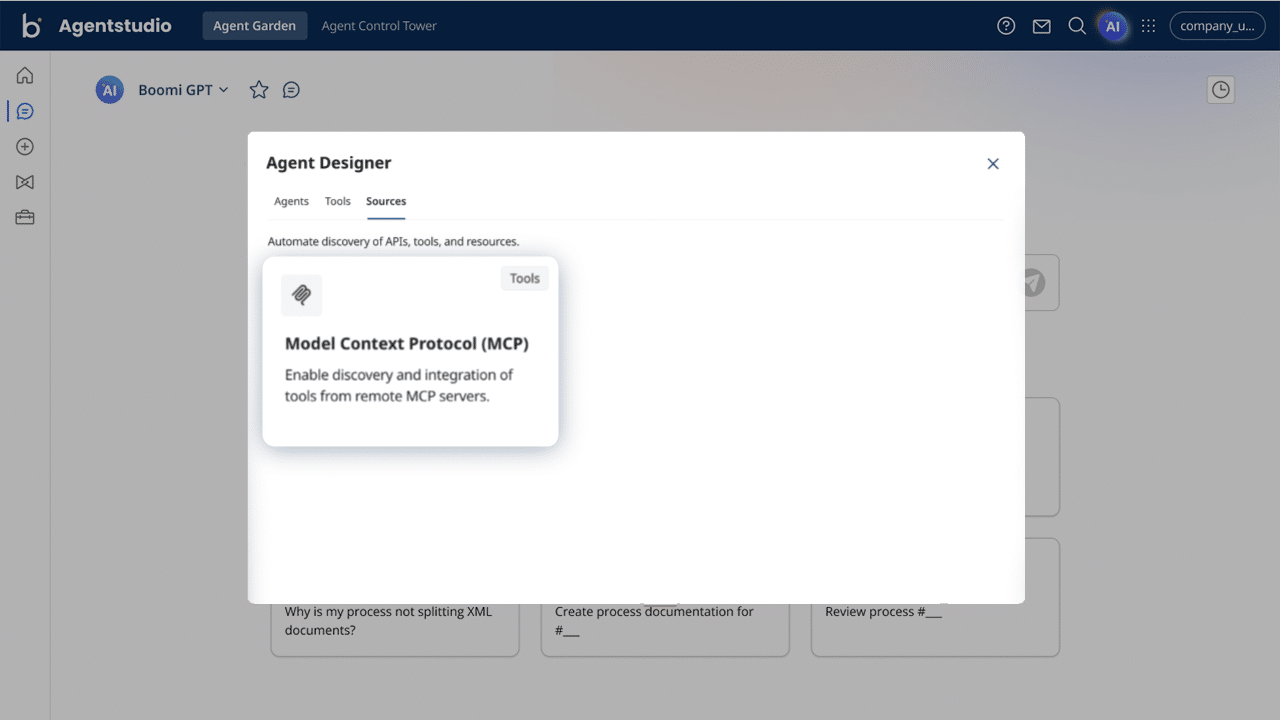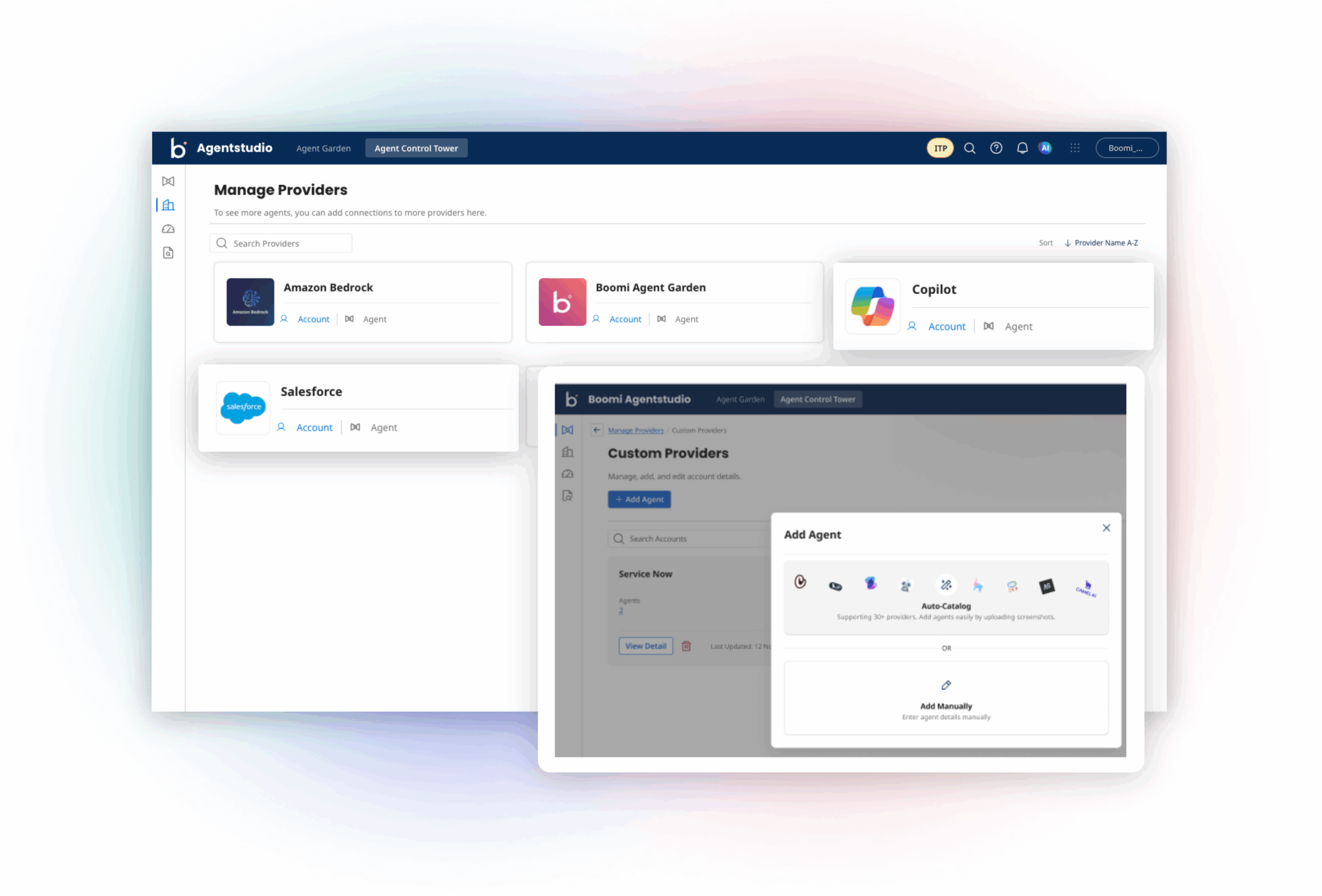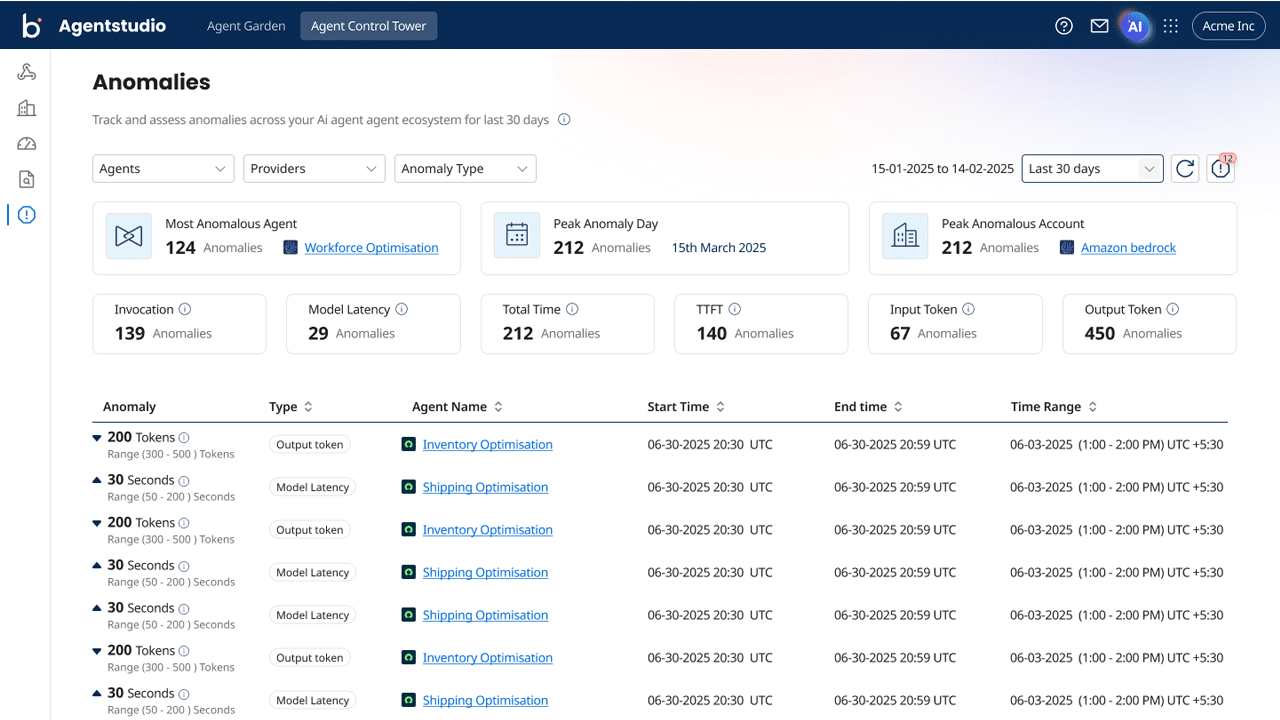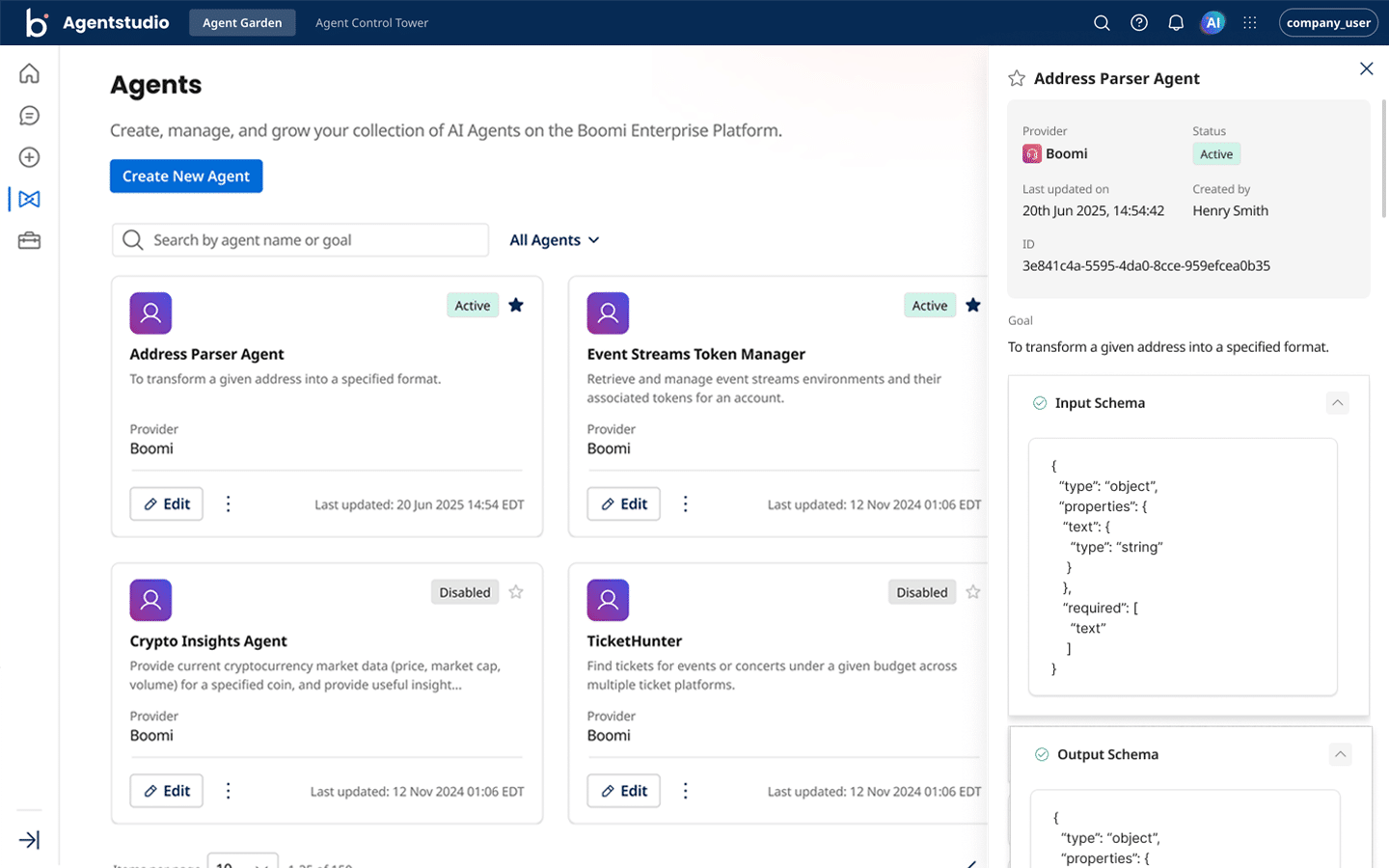See the highlights of the September 2025 release for Boomi Agentstudio. You can also view the release notes for a detailed technical overview.
Ramp Up More Complex Agents With MCP Support

Boomi Agentstudio now supports shared Model Context Protocol (MCP) services, ending tedious custom work. Say goodbye to time spent creating, teaching, and updating new agent tools, and be no longer limited to tools in your organization.
- Gain instant access to broad set of ready-to-use tools with a single setup, only requiring a web link and authentication method
- Reduce management overhead with autoupdated and self-documenting MCP sources and tools, enabling agents to use tools immediately upon registration
- Integrate more easily with the Boomi Enterprise Platform, now with MCP support in Boomi API Management for simpler API service exposure
MCP support enables you to bring out more complex agents and integrate them for advanced automations by using Agent Step, which is now available in the base edition of Boomi Agentstudio at no additional cost.
Gain Full Visibility Across All Agents, No Matter Where They’re Built

Achieve organization-wide visibility across all AI agents through Agent Control Tower’s centralized agent registry. This full level of control strengthens governance and blocks security threats from happening as you scale your agent workforce. Boomi Agentstudio now supports agents from Amazon Bedrock, Salesforce Agentforce, and Microsoft Copilot, with API support to upload custom agents becoming available later this month.
Mitigate Risk With Proactive Monitoring

Anomaly detection in Agent Control Tower surfaces actionable insights in real time by monitoring irregular agent behavior. Protect systems and optimize performance through easily flagging rogue agents and risky accounts for targeted improvements.
Design Even More Reliable Agents

AI agents in Boomi Agentstudio now have structured inputs and outputs. Meaning, agents can now consume and emit data that follows a predefined structure rather than free-form text. This makes agent behavior more predictable, increases ease of connectivity between agents and business systems, and streamlines chaining of agents and tools. All in all, integrating and orchestrating production-ready agents just got easier.


 English
English 日本語
日本語